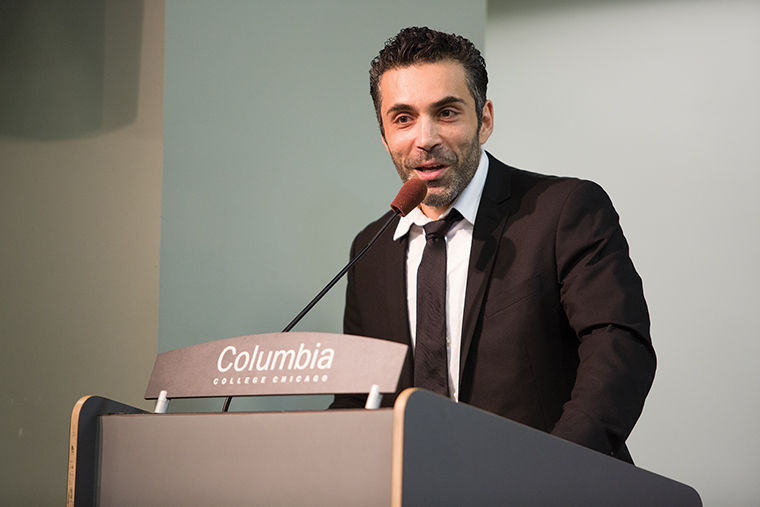Professor’s course section added after much debate
One section of adjunct faculty member Iymen Chehade’s “The Israeli-Palestinian Conflict” was added for the Spring 2016 Semester, which previously was not offered.
December 24, 2015
A second section of adjunct faculty member Iymen Chehade’s “The Israeli-Palestinian Conflict” course that was not originally planned to be offered for the Spring 2016 Semester was added on Dec. 7.
When the same section was cut in November 2013, the decision led to a union grievance and public outcry against the college, as reported on March 20, 2014, by The Chronicle.
Chehade, who teaches in the History, Humanities & Social Sciences Department, said he was notified via email that his course section was going to be offered and was not given a clear reason as to why the change occurred.
Chehade said he thinks the administration possibly felt pressure from students, the media and through a federal lawsuit filed Oct. 9 brought by P-Fac, Columbia’s part-time faculty union, against the college alleging Columbia breached its contractual duty by refusing to arbitrate the grievance arising from the previous cancellation, which the union claimed was a breach of academic freedom, as reported Oct. 26 by The Chronicle. FC
“I don’t know what the rationale is—the whole process has been irrational,” Chehade said.
College spokeswoman Cara Birch said in a Dec. 21 emailed statement that Chehade’s claims that his course section was “cut” and later “reinstated” are incorrect.
“It is surprising that Mr. Chehade continues to misunderstand the process by which course and section assignments are made, despite the college’s continued efforts to share information with him,” Birch said.
The college assigns class sections first by enrollment and then makes adjustments with additional sections added later so students are not faced with last-minute cancellations, Birch said.
She added that the college’s top priorities are to offer a balance of courses through course rotations and also maintain an appropriate level of enrollment across all sections.
Chehade’s course section was not offered at the beginning of the resgistration period for the Spring 2016 Semester, which was different from a previous instance in November 2013 when one of his two assigned sections were removed from online registration on Oasis, as reported Nov. 16 by The Chronicle.
An Illinois academic freedom committee of the American Association of University Professors later found Columbia guilty of an academic freedom violation, which the college denied, as reported April 7, 2014, by The Chronicle.
“It is very difficult to understand their behavior since the very beginning [of] this whole situation,” Chehade said. “It has sort of been harassment after harassment in my opinion.”
Natalie Anderson, a junior cultural studies major who is currently in Chehade’s course, said she was disappointed when she first heard one of his sections was not offered, and she wishes there were more sections available because the class is so popular among students.
“It was a really interesting class,” Anderson said. “I hope they leave these two sections, if not [I hope they] add more in the future. [Chehade] is a brilliant teacher. He has a lot of investments in his students and in the course work.”
Chehade said he is happy the sections was added, but said it is important to consider why it wasn’t offered in the first place—something he is still unclear of and upset about.
“There continues to be harassment about this class,” Chehade said. “That is an issue the college needs to address and needs to have an open discussion about.”
Chehade and two other adjunct professors who teach in the Humanities, History & Social Sciences Department, were notified that additional sections opened based on enrollment, Birch said, adding that enrollment is continually monitored and updated until the Spring Semester begins.








